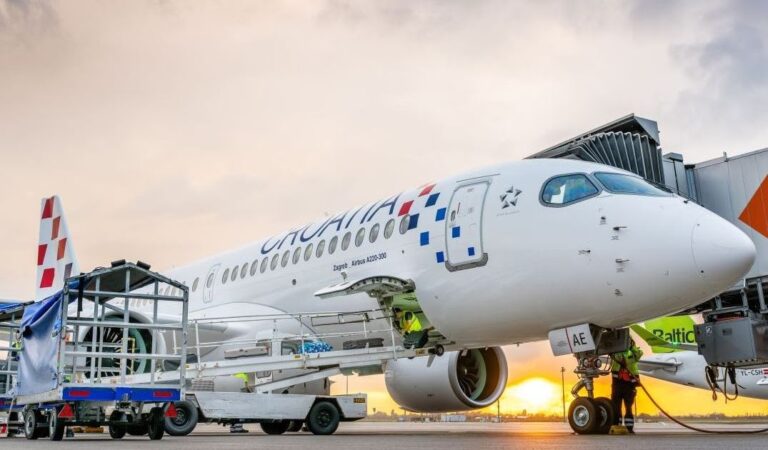Croatia Airlines’ ongoing transition to a single-type Airbus A220 fleet is significantly increasing expenses which will be reflected in its 2024 financial results, with the carrier expected to post a net loss of several million euros. The company’s CEO, Jasmin Bajić, told IATA’s “Airlines” magazine, “Costs are going up generally and Croatia Airlines is also going through a transition phase, which increases our cost exposure. Our pilots need two months’ training for the new aircraft, for example, and there is constant monitoring of all the work we are doing and many new items and systems to buy. And structural exposure to new regulations and industry crises is always there”.
Mr Bajić believes the savings the new fleet will bring will ultimately make a difference to the carrier’s bottom line. “Our new fleet will bring us a 25% reduction in fuel and lower maintenance costs. And we hope our new product and focus on customer service will increase revenues. Reducing cost and increasing revenue is always the challenge though. That’s business”, Mr Bajić said. He added European Union regulations regarding the usage of SAF (Sustainable Aviation Fuel) will also impact the airline’s costs. “There is a problem with the 2% EU mandate for SAF and its availability. And that problem is worse for us. If bigger airlines and airports are worried about it, imagine the issue for a small airline and small airport. Where are we supposed to source the SAF and what will the cost be when we don’t have the same economies of scale? Our costs will be proportionally greater. In Croatia, we do not have SAF production, so we will have to transport SAF to Zagreb too”, the CEO noted.
Croatia Airlines is preparing to take delivery of its third Airbus A220-300 aircraft by the end of this quarter. According to Mr Bajić, the passenger feedback so far has been positive. “I was at passport control recently and listened to what our customers were saying. I was very happy with what I heard about our efforts. Our work to improve our product and services has been noticed. It’s vital that we streamline processes, and, like many airlines, we are undergoing a digital transformation to ensure we are at the cutting-edge of passenger services. But it is also about getting details right. The new aircraft will all have USB ports, better seats, larger windows and high-speed inflight Wi-Fi”, Mr Bajić concluded.





